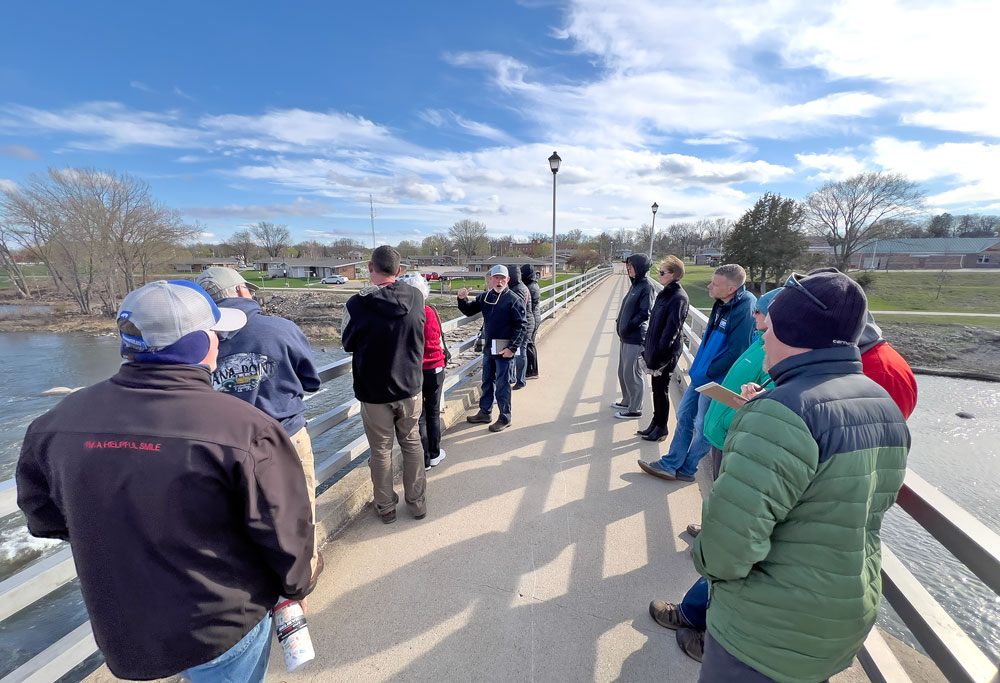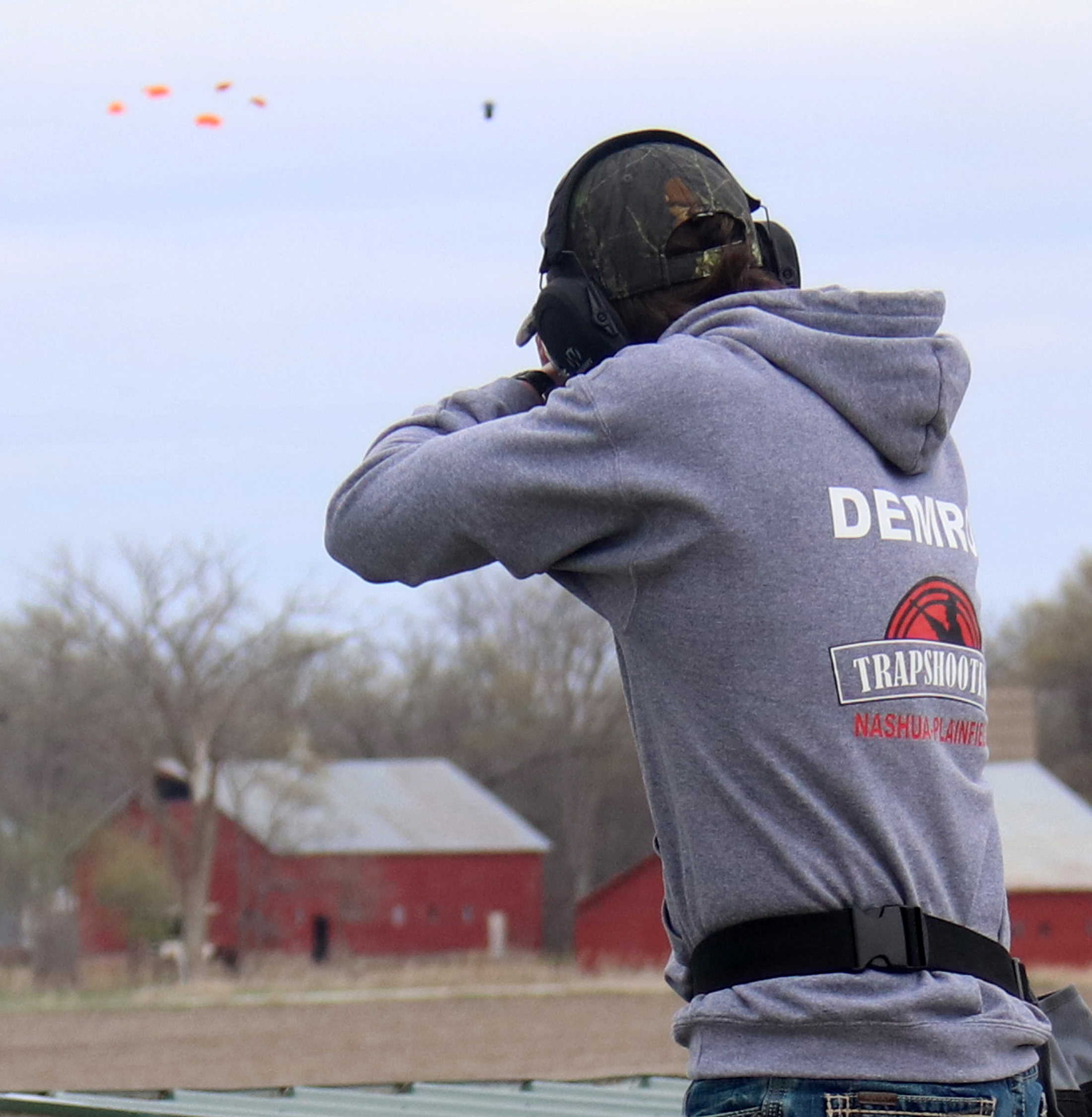Group launches petition drive to appeal Floyd County budget and property tax levy
By Bob Steenson, bsteenson@charlescitypress.com
An effort is underway in Floyd County to file a state appeal regarding the next fiscal year county budget, which was passed recently by the Board of Supervisors.
The effort, led by Charles City CPA Scott Andrews and others concerned about rising county property taxes, involves collecting names on a petition that would start a review by the State Appeal Board, a group made up of the director of the Iowa Department of Management, the auditor of state and the treasurer of state.
The petition alleges four areas where petition supporters say the supervisors acted improperly. They are:
“1) The proposed budget for expenditures for fiscal year and authorized expenditures therein underestimate the cost of Floyd Co. Law Enforcement Center construction and County Courthouse renovations.
“2) The Board of Supervisors unreasonably and arbitrarily increased the tax levy as to property holders in order to finance improperly contracted repairs and work orders without any cap or adequate supervision of construction costs already approved, or to be approved in the future by Floyd County Board of Supervisors.
“3) The proposed budget fails to clearly and adequately specify the income sources to be used by the county for the Law Enforcement Center construction and County Courthouse renovations and the true cost of the same.
“4) The review process of the budget including review and submission of budget proposals and change order were not sufficiently identified to comply with the requirements of the Iowa Open Meetings Law for disclosure of Board of Supervisors’ activity with regard to the budget expenditures for tax year herein contested and protested.”
The allegations primarily involve the cost of the county law enforcement center and courthouse updates project. The project was originally estimated by the project architects to cost about $13.5 million, and that is the amount of general obligation bonds that county voters approved issuing in a referendum.
But when bids on the project were opened after more than a year of design work, the total price tag came in more than $4.6 million above the estimated price.
Andrews, who spoke out on the law enforcement center project and other issues during a property tax public hearing on March 1, and at a public hearing on the county budget on March 23, told the Press Monday, “As I kept digging in and finding out more information, a lot of things just didn’t sit well with me.”
He said he disagreed with the supervisors’ actions asking for bond approval before they had any bids in hand, on not stopping to re-evaluate the project once it became apparent that the cost was going to be much higher than the estimates, and not going back to the people for additional bonding to get their approval to cover the extra cost.
Andrews had raised many of the same concerns in his statements at the public hearings, along with a request he made at both hearings that the county do a special audit of the entire project.
In response, supervisors said that bond referendums are almost always held before bidding, because bond approval is needed to make sure that the design work and other expenses that are needed before going out for bids can be paid for.
Supervisor Chairperson Linda Tjaden said every step of the project had been approved at public meetings, including the bidding, discussions on the extra costs, and discussions on ways to cover the additional cost.
“We’ve been completely transparent,” Tjaden said at the budget hearing March 23.
(The topic has also been covered extensively by the Press throughout the process.)
Supervisors said they spent many public meetings discussing if they could continue with the project after the bids came in as high as they did, eventually settling on a plan to combine about $800,000 in projects cost cuts with additional funding sources to go ahead with what they saw as an essential project.
Additional funding they planned on included $2.5 million from the general fund carryover, raising an additional $1.9 million from premiums on bond sales, and coming up with about $400,000 from other sources, including interest on the bonds proceeds before they were needed and in interest on the general fund carryover.
Supervisors said the additional property tax asking this year that can be attributed to the law enforcement center project is about $800,000 of the total $1.15 million increase that was approved being collected.
That $800,000 shortfall can be attributed mostly to receiving less interest than expected because rates dropped during the COVID-19 pandemic, and because of cost increases, they said. Some of those cost increases they blame on items missing or in error in the designs from the architect, Prochaska & Associates, of Omaha, Nebraska.
But Andrews wasn’t satisfied with the answers he received at the public hearings.
“There’s no oversight on any of it to keep it on budget,” he said about the project.
He also said he was concerned that the public wasn’t adequately informed about when the supervisors were going to talk about specific project items.
He referred to a regular supervisors agenda item on COVID-19 discussions that the Iowa Public Information Board has determined does not meet the requirements of the Iowa Open Meetings Law requiring agendas to be specific about what will be discussed during meetings.
Andrews said the regular agenda item regarding the law enforcement center project is similarly vague.
“The whole thing just doesn’t pass the smell test. One of the bigger issues is the public was not adequately being informed,” Andrews told the Press.
He said that when the supervisors became aware that the project was going to cost much more than estimated, they should have gone back to the voters to seek approval for additional bond sales, similar to what Warren County did on its justice center project when costs on that project were higher than anticipated.
That would have given voters a chance to decide if they wanted to continue supporting the project at the higher cost, Andrews said.
According to Iowa Code, residents or property owners in a city or county can sign a petition asking the state appeal board to review a budget if they have objections to taxes or expenditures. The petition must be signed by at least 100 people “who are affected by any proposed budget, expenditure or tax levy, or by any item thereof.”
The petition must be turned in to the county auditor’s office by April 10, but Andrews said since April 10 this year is a Saturday, they plan to turn their petition in on Friday, April 9.
He said about 30 people attended a meeting last Thursday night at the Floyd fire station and agreed to take petitions to be signed in the county.
Once the petition is turned in, the county auditor will verify the signatures and then, according to the code, “immediately prepare a true and complete copy of the written protest, together with the budget, proposed tax levy or expenditure to which objections are made, and shall transmit them forthwith to the state board, and shall also send a copy of the protest to the certifying board or to the levying board, as the case may be,” which in this case would be the Board of Supervisors.
The state board will then set a time and place for a hearing on the protest. Although the state officials on the appeal board are charged with making a determination on the appeal, they will likely send a representative to hold the actual hearing.
Part of the petition asks that the hearing be held in the evening and at the Youth Enrichment Center at the Floyd County Fairgrounds “to allow maximum participation.”
“At all hearings, the burden shall be upon the objectors with reference to any proposed item in the budget which was included in the budget of the previous year and which the objectors propose should be reduced or excluded; but the burden shall be upon the certifying board or the levying board, as the case may be, to show that any new item in the budget, or any increase in any item in the budget, is necessary, reasonable, and in the interest of the public welfare,” the code says.
After the hearing, the appeals board can decide to leave the budget and property tax levy as they were approved, or can reduce them by an amount it sees fit. It cannot increase budget expenditures or tax levies.
Floyd County Auditor Gloria Carr, who said she has never been through a budget appeal by petition, said if the state board reduces the budget and/or tax levy, it would be up to the supervisors to adjust spending to meet the new limits.







Social Share